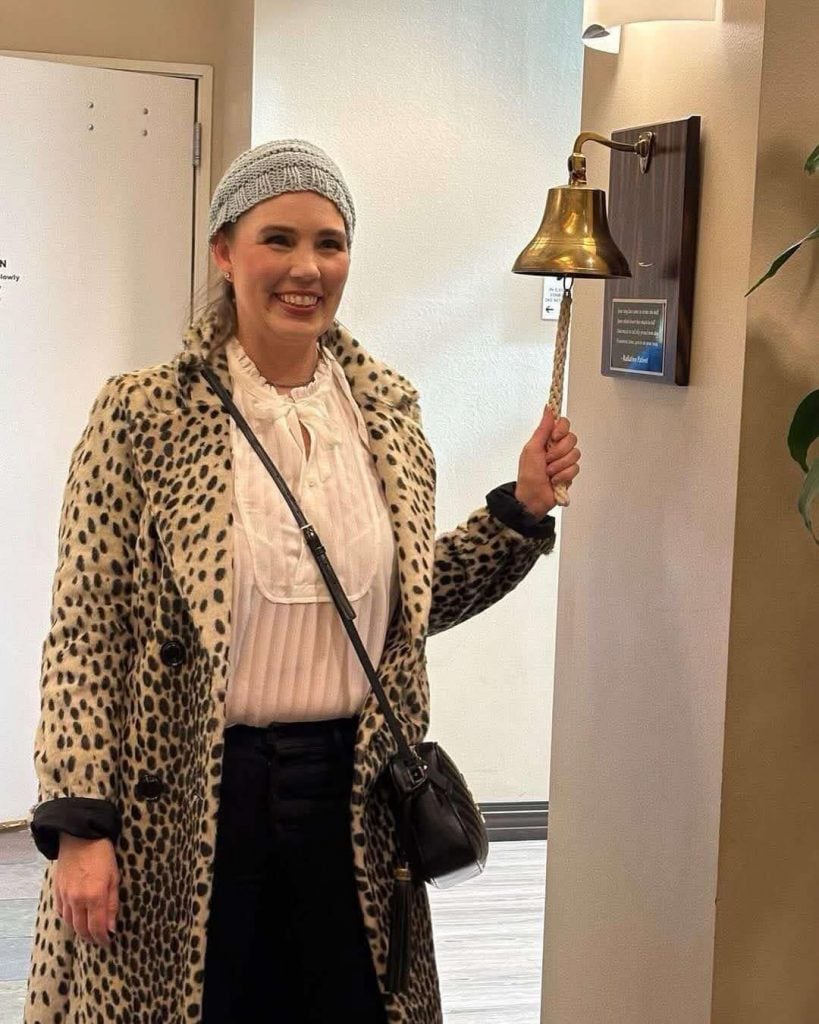What Cancer Thrivers Want to Hear — And What They REALLY Don't
- When communicating with a loved one fighting cancer, there are certain things that you, well, should not say. Of course, every person is different, so what irks one survivor may not bother another, but overall, it’s important to think before you speak when talking to someone going through something so life-changing.
- If you do happen to say something awkward in the moment, a quick, heartfelt apology goes a long way — don’t drag it out even further. Listening goes a long way as well. And letting that person know you are there to support them.
- “As people tried to console me, everyone said my hair would grow back and not to stress out so much. While I understood they were trying to comfort me and say something positive, it wasn’t helpful,” Veteran reporter Heather Altamirano, who is just completing chemotherapy and radiation, told SurvivorNet.
- Some people want to share their experiences as much as they can and others don’t want to tell anyone. SurvivorNet’s medical experts say both of these approaches, and everything in between, are valid.
A top rule of thumb from survivors across the board is: do not talk about a person who died from cancer, especially your friend or family member’s type of cancer.
Read MoreSurvivor Stories: Catherine Gigante-Brown
Living with a cancer diagnosis is hard enough — don’t make it more unpleasant. That’s the advice of Brooklyn-based writer and breast cancer survivor Catherine Gigante-Brown. Catherine’s point blank advice is “don’t say stupid things.” That includes anything about someone you know who died of cancer.“We don’t need to hear the horror stories,” Catherine added. “People often don’t know how to handle a friend who has had a diagnosis. My advice to them is basically just be yourself. The person has not changed just because they have cancer. It’s important to be there for them and not ignore them just because you might not know what to say.”
“A good place to start with a friend or family member who has recently been diagnosed is to simply ask them what you can do to help,” she continued. “Being available to assist in any way, can make a big difference.”
How to Talk to a Friend With Cancer
Conversely, some survivors say that asking what a person fighting cancer needs can also put additional pressure for a specific, detailed response (or any response), so if you’re trying to think of something to do for that person, when in doubt, just sending over something thoughtful. This could be a card or email, a gift card for groceries or food delivery, or comforting item like slippers, a beautiful blanket, or a journal. Anything that, as a whole, would brighten anyone’s day and help sooth them should work.
And by all means, do not get upset or voice frustration if they do not respond. Do not take it personal — it’s not about you, trust me. Every day is different and brings its own challenges. Think of how difficult life can be right now for the average person to survive financially and emotionally, then imagine adding a cancer diagnosis to the mix, along with aftermath from the disease if that helps put what they are going through in a different perspective.
Survivor Stories: Heather Altamirano
Reporter Heather Altamirano, who has just completed radiation in her breast cancer journey with stage 2 grade 3 invasive ductal carcinoma, has also experienced discouraging comments that have been difficult to handle, from people in her circle who did not mean to hurt her feelings, and also from complete strangers, which is why sharing these stories is so important.
One major area of sensitivity for Heather, and many other survivors, has to do with chemo-related hair loss.
“I desperately tried to save my hair,” Heather explained to SurvivorNet. “After thousands of dollars [spent on a cold cap] and months agonizing over my hair, I lost the majority of it and retained only about 10%. I knew I wouldn’t handle it well and I didn’t.”

“I cried every day for hours and couldn’t stand to look at myself,” Heather continued of the understandably vulnerable time. “I wouldn’t even let close friends see me. As people tried to console me, everyone said my hair would grow back and not to stress out so much. While I understood they were trying to comfort me and say something positive, it wasn’t helpful.”
“Someone literally said, ‘I don’t know why you’re so upset. It’s not like it won’t grow back.'”
Therefore, do not dismiss someone’s feelings during this incredibly challenging time. For Heather and many other survivors, “the emotional trauma of losing your hair is not anything you can prepare for,” she said.

Heather’s hair is growing back, but she suspects that it will be “months” before she is able to look “somewhat normal again.”
“And when people tell you to calm down or that’s it’s not a big deal, it’s dismissing your feelings that you’re more than entitled to. Fighting cancer is a long hard battle that isn’t glamorous. If we want to be sad or angry we lost our hair, we should be allowed to work through those emotions.”
Heather has also had to endure unsolicited comments from people being over-the-top invasive after taking in her appearance, which includes rocking a buzz cut or head scarf as her hair grows in. For example, out of the blue, a random person at a grocery stores told her: “You should be grateful cancer treatments have advanced.”
“While I don’t mind talking to anyone about my journey or listening to others about a loved one, telling someone to be grateful isn’t necessary. We already are, and more than you’ll know,” Heather expressed. “But we’re still going to feel angry, crushed, sad and scared. Just because we feel a wide range of emotions doesn’t mean we’re not appreciative. It’s such a bizarre and inappropriate thing to say.”
Another person had the audacity to say that their dog’s reaction to her “must be the chemicals they smell” on her. “I was horrified and just walked away.”
Despite the tough exchanges she has experienced, Heather is immensely “thankful” for the people around her offering her support.
“I know I’m lucky and I’m so thankful to my medical team, friends and husband who have been supporting me for months,” she added. “But that doesn’t mean I’m not going to cry and be negative at times.”
To Share or Not to Share
Overall, many survivors who have undergone cancer treatment will tell you that openly discussing their condition has eased some of the stress associated with it, but this doesn’t work for everyone. Since cancer treatment is not a one size fits all approach — and it affects everyone different mentally — not everyone feels comfortable sharing what they are going through with others in social situations.
Some people want to share their experiences as much as they can and others don’t want to tell anyone. Both of these approaches, and everything in between (maybe you only want to tell a few close friends about your diagnosis), are valid.
“Patients who have just been diagnosed with cancer sometimes wonder how they are going to handle the diagnosis of the cancer in social situations,” psychiatrist Dr. Lori Plutchik previously shared with SurvivorNet. “How much information they should share and with whom they should share the information … everybody is different.”
Do I Need to Share My Cancer Diagnosis in Social Situations?
Some people are much more private about it. “And there is no one right way to handle this diagnosis,” she added.
“People should do what feels right to them. Going through a cancer diagnosis, through treatment, is often a very long process. And then if you also include after treatment ends where a person is in a kind of state of limbo, waiting to see if they are clear and get their scans. It may be three months or six months into the future. People are still dealing with uncertainty at that point.”
Additionally, Dr. Plutchik stressed that those close to a person going through cancer should be respectful of their wishes when it comes to disclosing their diagnosis and seeking support.
For Survivors — Questions to Ask Your Doctor
- What can I do if I am uncomfortable talking about my diagnosis?
- If I feel that I need support beyond friends and loved ones, what are my options?
- What can I do if I feel anxiety around my diagnosis?
- How much do I need to disclose to my place of employment?
Learn more about SurvivorNet's rigorous medical review process.

